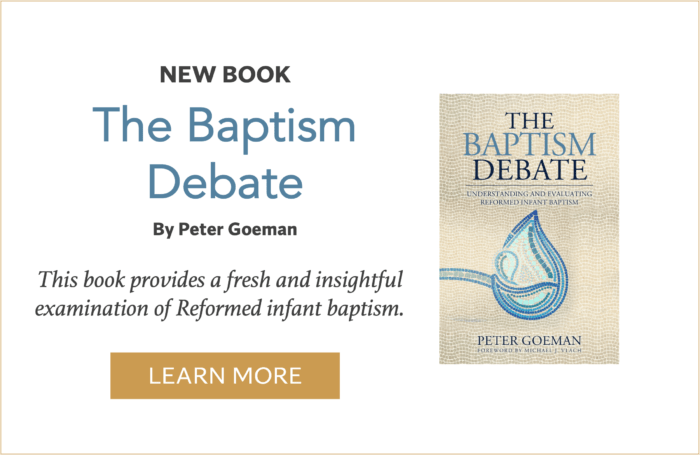The Historic Connection between Easter and Baptism
Easter is one of the most significant celebrations for the Christian, marking the resurrection of Jesus Christ from the dead. This celebration of Christ’s resurrection is arguably the centerpiece of the Christian life. After all, if Christ has not been raised, our faith is futile and we are still in our sins (1 Cor 15:17). It is no wonder that Easter is one of the most joyous occasions of the Christian life!
A lesser-known part of the Easter celebration is its historic connection to baptism. Traditionally, Easter was recognized as a prime time for the baptism of new coverts. The association between a believer’s baptism and Christ’s resurrection was viewed as central. But, it was not an issue that was without differing opinions.

The Easter Baptism Debate in the Early Church
Leo I was bishop of Rome from 440 to 461 AD. Also known as Leo the Great, Leo exercised his influence through letters and sermons to other church leaders in the Western world. In one such letter, Letter XVI (To the Bishops of Sicily), Leo reports some distressing information he had heard.
Accordingly when it reached my ears on reliable testimony (and I already felt a brother’s affectionate anxiety about your acts, beloved) that in what is one of the chief sacraments of the Church you depart from the practice of the Apostles’ constitution by administering the sacrament of baptism to greater numbers on the feast of the Epiphany than at Eastertide, I was surprised that you or your predecessors could have introduced so unreasonable an innovation as to confound the mysteries of the two festivals and believe there was no difference between the day on which Christ was worshipped by the wise men and that on which He rose again from the dead.
Leo the Great, “Letters,” in Leo the Great, Gregory the Great, ed. Philip Schaff and Henry Wace, trans. Charles Lett Feltoe, vol. 12a, A Select Library of the Nicene and Post-Nicene Fathers of the Christian Church, Second Series (New York: Christian Literature Company, 1895), 27.
As a bit of background to the quote, Epiphany is the Christian celebration which commemorates the first manifestation of Jesus to the Gentiles during the visit of the Magi in Matthew 2. The Epiphany celebration is held on January 6 in the Western church, while some Eastern Orthodox churches celebrate on January 19.
Leo was quite disturbed by what he had heard from his Sicilian brothers—that they were practicing more baptisms during Epiphany than Eastertide. Eastertide is a reference to the fifty-day period which follows Easter (spanning from Easter Sunday to Pentecost Sunday), which has traditionally been the time of celebration of Christ’s resurrection. Leo was adamant that the church should prefer baptism during the Easter celebration, not during Epiphany.
Not All Festivals are Equal
One of the interesting arguments Leo used in arguing that Easter should take priority for baptisms is that there should be a prioritization of Easter above other festivals. He writes,
For if we were to commemorate with indiscriminate honour these things also which we know to have been done by the LORD after His baptism by the blessed John, His whole life-time would have to be observed in a continuous succession of festivals, because all His acts were full of miracles.
Leo the Great, “Letters,” 27–28.
In other words, Leo is saying that Epiphanes and Eastertide should not be treated with the same importance, and the fact that the church leaders of Sicily were baptizing more people on Epiphanes than Eastertide was giving that impression to Leo.
Later on in his letter, Leo seems to imply that baptism ought not to take place outside of Eastertide (except in special circumstances).
Wherefore, as it is quite clear that these two seasons of which we have been speaking [Easter and Pentecost] are the rightful ones for baptizing the chosen in Church, we admonish you, beloved, not to add other days to this observance.
Leo the Great, “Letters,” 29.
Why Baptism is Associated with Easter
If you are wondering why Leo was so adamant that baptisms should take place over the Easter celebration, his explanation is clear enough.
That it might be seen from the spirit of this doctrine that that is the day, and that the time chosen for regenerating the sons of men and adopting them among the sons of God, on which by a mystical symbolism and form, what is done in the limbs coincides with what was done in the Head Himself, for in the baptismal office death ensues through the slaying of sin, and threefold immersion imitates the lying in the tomb three days, and the raising out of the water is like Him that rose again from the tomb.
Leo the Great, “Letters,” 28. Emphasis added.
In other words, according to Leo, our baptism corresponds to what Christ suffered in his death, burial, and resurrection. This picture of baptism certainly corresponds to what we read in Scripture. Colossians 2:12 describes baptism this same way: “having been buried with him in baptism, in which [i.e., baptism] you were also raised with him through faith in the powerful working of God, who raised him from the dead.” Similarly, Romans 6:4 connects the believer’s baptism and the death of Christ: “We were buried therefore with him by baptism into death, in order that, just as Christ was raised from the dead by the glory of the Father, we too might walk in newness of life.”
The biblical definition of baptism is a picture and symbol of the believer being united with the death of Christ (pictured by the immersing of the believer in the water), and being united with His resurrection (pictured by the coming up out of the water). Thus, it is a fitting reflection on Easter to remember the biblical importance of baptism.
Reflections on the Idea of Easter Baptisms
Although I don’t think Easter should be the only time the church should allow baptisms, I think perhaps we have gone a little too far in the other direction by often not even mentioning the close connection between the celebration of Easter and our own baptisms.
Last year, I had the privilege of baptizing a dear friend in brother in Christ on Easter. I have to say, it was an incredible privilege and memory! There was a specialness in knowing that we were celebrating Christ’s resurrection in the most genuine way possible by doing a baptism on that day.
At the end of the day, it doesn’t matter what day you are baptized. But what matters is knowing what baptism signifies! Baptism signifies the believer’s union to Christ in His death and resurrection. Because of that union, we are granted a newness of life (Rom 6:4). And as Paul reminds the believers of Rome, that privilege carries with it the obligation to “walk in newness of life.” May we all do so for His honor and glory.
Happy Easter!
